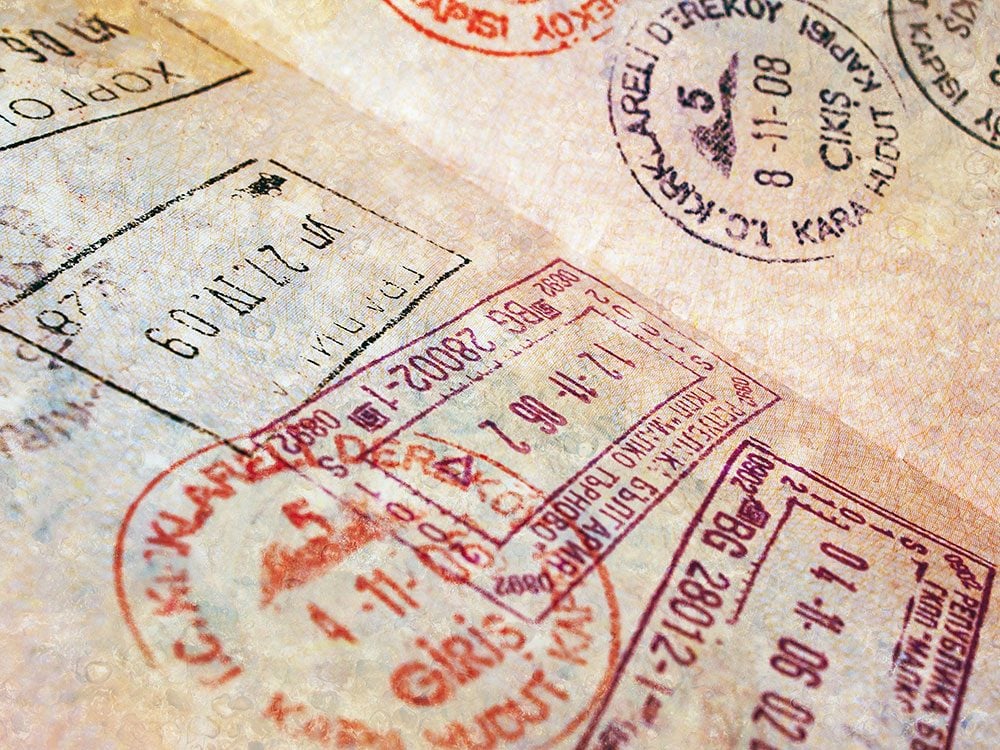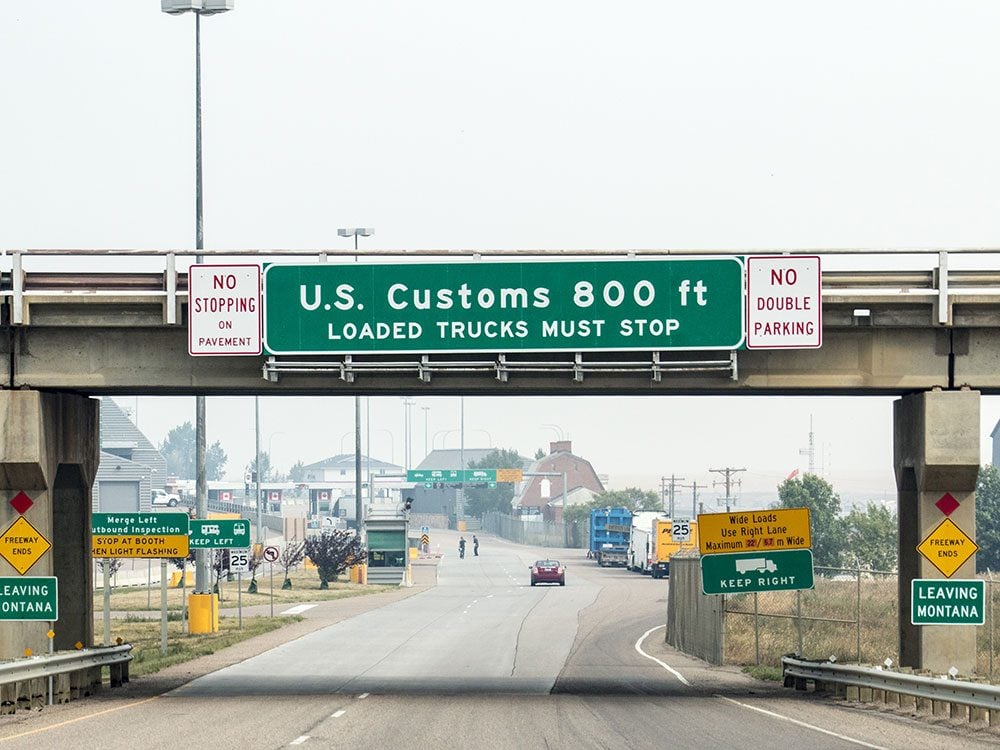
What it’s like for a poet crossing the border
Nearly every time I’m crossing the border it feels like an ordeal: the anxiety, the agent staring deep into your soul, lines as long as the ones in a Walt Whitman poem. Are they going to find the oranges you stuffed down your pants? Do you even remember the name of the place you’re going? New Pork. I mean York. York!
When the guard asks you questions, it’s important to act natural. What is the average rainfall of the Amazon Basin? When did you start cheating on your taxes? Where were you the night of January 24? Spell your middle name. Backwards.
Being a poet, I’m bewildering to the inquisitor in the little booth.
“And what’s the purpose of your trip, sir?”
“A poetry reading.” I might as well add, “Of course I’ve brought bongos.” Once, upon learning my profession, a border guard pulled a sheaf of original poems out of her jacket and read them to me for 10 minutes. It was my challenge to think of sufficiently complimentary things to say so she’d let me into her country. “I love how you compare love to cheese sticks. So beautiful and so apt!” Those behind me, sweltering in their cars, must have assumed she was grilling me. Maybe it was all a sophisticated interrogation technique to make me admit I was really going shopping for discount shoes.
Read on!

This is what happens when a poet tries crossing the border
I learned young that being in the arts can lead to awkward situations while crossing the border. It all began in the 1970s, when I was 12 years old. I was starting my first year at an arts boarding school in northern Michigan. Travelling there from Ottawa, I had a layover in Chicago. I had never taken a plane alone before. Of course, I was carrying my saxophone. Under the X-ray machine at security, the neck looked suspiciously like an old-fashioned flintlock gun.
“What you got there, son?” the security guard asked, brushing back his Elvis pompadour and opening the case.
“Looks like a gun.”
“No,” I choked. “It’s my saxophone.”
“Yeah?” he said. “Prove it. Play something.” I looked around for help. There were hundreds of people in line behind me.
“What should I play?”
“If this really is a saxophone, something cool and jazzy.”
I was a pre-teen kid from the suburbs. My favourite song was “Baby Elephant Walk.” Panicking, I quickly reviewed my middle-school band repertoire: “Silver Bells,” “Slavonic Dances,” “My Grandfather’s Clock.”
“Cool and jazzy,” the guard repeated, looking at me.
There was no way out. I began playing “The Pink Panther.” I tried to make it as slinky-cool as possible. I even added a growl effect I’d been practising. When I finished, much to my horror, the people waiting in line applauded.
“Nice work, son,” the guard said. “Next, play some for the pilot.” I didn’t realize until much later that he’d been teasing me.
These days when I’m travelling south, I don’t take any chances: I simply avoid telling agents I’m in the arts altogether.
But just in case you’re a guard reading this: I’ve never seen those oranges before. I don’t own bongos. And okay, I admit it. I am going shopping for discount shoes.
Can you guess which passport is the most powerful in the world? (No, it’s not Canadian!)